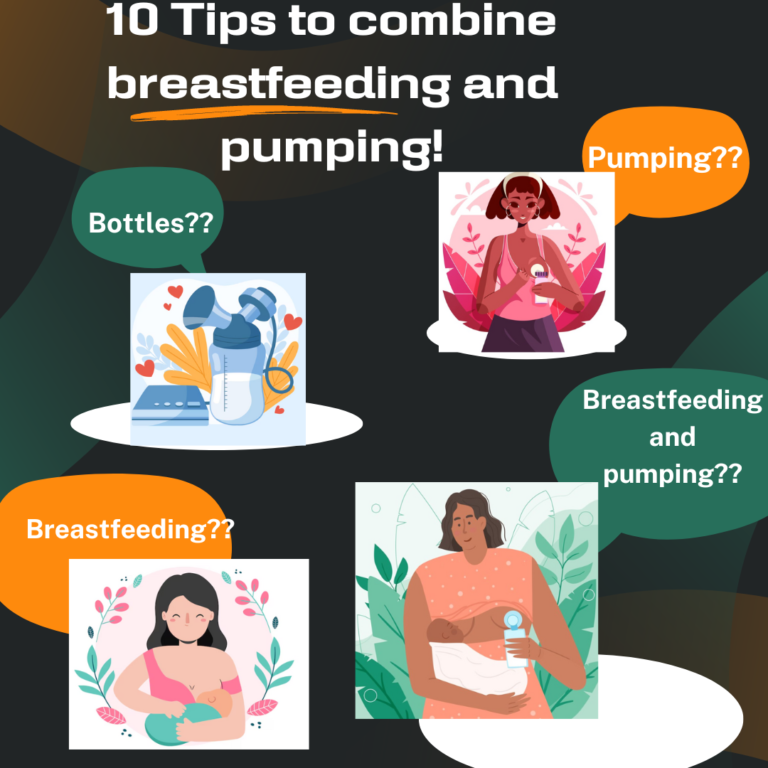Do breastfeeding prevents type 2 diabetes mellitus: how and why?

Breastfeeding is a remarkable journey for both mother and baby, offering an array of health benefits. For mothers with type 2 diabetes, it can be even more significant. In this article, we’ll explore the profound connection between breastfeeding and managing type 2 diabetes. Understanding the impact, benefits, and strategies for diabetic moms can empower them on their path to better health. Let’s dive into the valuable information that highlights how breastfeeding prevents type 2 diabetes mellitus, and if yes then how?

Is it safe to breastfeed with type 2 diabetes?
Breastfeeding is generally safe for mothers with well-controlled type 2 diabetes. In fact, research suggests that breastfeeding can have several positive effects on both maternal and infant health, including:
- Blood Sugar Control: Breastfeeding can help improve insulin sensitivity in diabetic mothers, which may aid in better blood sugar management.
- Weight Loss: It can contribute to postpartum weight loss, which is beneficial for those with type 2 diabetes.
- Metabolic Health: Research indicates that breastfeeding may lower the risk of metabolic syndrome and cardiovascular disease in diabetic women.
- Baby’s Health: Breast milk provides optimal nutrition for the baby, promoting healthier growth and development.

However, it’s essential for diabetic mothers to work closely with healthcare providers to ensure safe breastfeeding. Monitoring blood sugar levels, adjusting medications if needed, and maintaining a balanced diet are crucial. If a mother’s diabetes is not well-controlled, or if she has complications, her healthcare team may recommend alternative feeding methods, as uncontrolled diabetes can affect the composition of breast milk and the baby.
How long do you have to breastfeed if you have diabetes?
The duration for which a mother with diabetes should breastfeed is not specifically determined by the fact that she has diabetes. Instead, the recommended duration for breastfeeding is similar to that for mothers without diabetes.
According to the American Academy of Pediatrics (AAP), it is recommended that infants are exclusively breastfed for about the first six months of life, followed by the introduction of complementary foods, with continued breastfeeding for at least one year or longer as mutually desired by the mother and baby.

The recommended duration for breastfeeding is similar for mothers with or without diabetes. It’s advised to exclusively breastfeed for about the first six months, followed by the introduction of complementary foods. Decisions on how long to breastfeed should be based on the infant’s nutritional needs and the mother’s preference, with consultation with a healthcare provider for any necessary adjustments to diabetes management.
Is there anything women with diabetes need to know before they decide to breastfeed?
Yes, there are important considerations for women with diabetes before deciding to breastfeed:
- Consult a Healthcare Provider
- Blood Sugar Monitoring
- Balanced Diet
- Stay Hydrated
- Medication Adjustments
- Lactation Support
- Prepare for Challenges
- Breastfeed on Demand
- Observe Baby’s Blood Sugar
- Continued Monitoring

By considering these factors and working closely with healthcare providers, women with diabetes can safely and successfully breastfeed, reaping the numerous benefits it offers for both themselves and their babies.
What should be the diet of the breastfeeding mother with Type 2 diabetes?
Breastfeeding mothers with type 2 diabetes should follow a balanced diet that helps regulate blood sugar levels.
Here are dietary considerations:
- Complex Carbohydrates: Choose whole grains like oats, quinoa, and brown rice to provide steady energy and help control blood sugar.
- Lean Proteins: Include lean protein sources such as poultry, fish, tofu, and legumes. Protein helps maintain muscle and supports satiety.
- Healthy Fats: Opt for unsaturated fats like avocados, nuts, and olive oil. These fats are heart-healthy and can help manage blood sugar.
- Fiber-Rich Foods: Consume plenty of fruits and vegetables to increase dietary fiber, which can slow down the absorption of sugar and promote stable blood sugar levels.

- Portion Control: Keep portion sizes in check to prevent blood sugar spikes. Eating smaller, balanced meals can help maintain control.
- Regular Meals and Snacks: Eating at regular intervals helps prevent extreme fluctuations in blood sugar levels. Include healthy snacks like Greek yogurt or veggies with hummus.
- Avoid Sugary Drinks: Limit or avoid sugary beverages like soda and fruit juices. Choose water, herbal teas, or unsweetened drinks.
- Hydration: Stay well-hydrated with water. Proper hydration is important for overall health and can aid in blood sugar control.
- Monitor Blood Sugar: Regularly monitor blood sugar levels, particularly around meal times, to understand how different foods affect your body.
- Work with a Dietitian: Consulting a registered dietitian who specializes in diabetes can be invaluable. They can create a personalized meal plan and offer guidance.
Remember that the specific dietary needs of a breastfeeding mother with type 2 diabetes may vary, so it’s essential to work with a healthcare provider and a dietitian to develop a meal plan (Recipe here) tailored to individual circumstances. Regular monitoring and adjustment of the diet may be necessary to maintain stable blood sugar levels while providing optimal nutrition for both mother and baby.
How healthcare professionals can help you?
Healthcare professionals can provide valuable support to individuals, including breastfeeding mothers with type 2 diabetes, in various ways:

- Diabetes Management
- Blood Sugar Monitoring
- Nutritional Guidance
- Breastfeeding Support
- Medication Assessment
- Risk Evaluation
- Educatio
- Baby’s Health Monitoring
- Psychological Support
- Collaboration
- Problem-Solving
Healthcare professionals serve as essential sources of information, support, and guidance. By collaborating with healthcare providers, mothers with type 2 diabetes can navigate the intricacies of breastfeeding while effectively managing their diabetes, ensuring the health and well-being of both themselves and their babies.
Conclusion
In conclusion, breastfeeding for mothers with type 2 diabetes can be a rewarding and healthful journey when approached with guidance from healthcare professionals and personalized care. It offers numerous benefits for both mother and baby, from blood sugar control to postpartum weight loss and better overall health. It is essential for mothers with diabetes to work closely with their healthcare providers, monitor blood sugar levels, maintain a balanced diet, and be aware of potential medication adjustments. The support of lactation consultants and dietitians can further enhance the breastfeeding experience. Remember, a healthcare team can help ensure that breastfeeding is a safe and successful endeavor for mothers with type 2 diabetes.
FAQs:
1. Can women with type 2 diabetes breastfeed safely?
Yes, breastfeeding is generally safe and beneficial for mothers with type 2 diabetes when properly managed.
2. How can healthcare professionals assist breastfeeding mothers with diabetes?
Healthcare professionals help by offering guidance on diabetes management, blood sugar monitoring, nutritional support, and breastfeeding techniques.
3. What dietary considerations are important for breastfeeding mothers with type 2 diabetes?
These mothers should focus on complex carbohydrates, lean proteins, healthy fats, portion control, and staying well-hydrated to regulate blood sugar levels and support milk production.
















+ There are no comments
Add yours